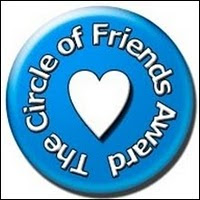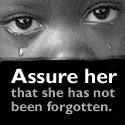I have had the pleasure of becoming acquainted recently recently with a wonderful family – the Smith Family. The offspring of Jim and Nancy Smith has done wonderfully well for themselves. Todd Smith is a member of the Christian music trio, Selah. Nicol Sponberg has a successful solo career after her departure from Selah. Their little brother, Jack, is a worship leader at a church here in the Metro Detroit area. I had the pleasure of attending a Women’s Tea for Jim and Nancy’s ministry, Laban Ministries, in January; you can read my blog post here.
The oldest sibling, Shawn Lantz, is successful in her own right. I had the pleasure of meeting her at that Tea; she was a lovely lady! She is the author of two books; the first is ‘Congo Vignettes: Stories of God’s Faithfulness to Three Generations in the Heart of Africa’ (you can see my review here). Her second book is a Women’s Bible Study Workbook entitled ‘Living with Unmet Desires: Exposing the Many Faces of Jealousy
(you can see my review here). Her second book is a Women’s Bible Study Workbook entitled ‘Living with Unmet Desires: Exposing the Many Faces of Jealousy .’ Here is her biography from the back cover of that book:
.’ Here is her biography from the back cover of that book:
Shawn’s passion is to encourage women to develop a love for the Scriptures. Shawn has had the privilege of sharing the transforming gospel of Jesus Christ through her daily blog, a weekly Bible study, and various women’s retreats. Shawn and Rob have three children and reside in Nashville, Tennessee. Her blog and contact information are found on her website at www.esengoministries.com.
Here is the description of this Bible study from the back cover:
Has living with unmet desires ever frustrated you? Perhaps you have puzzled over the underlying cause of anger, bitterness, or strife within your personal relationships, not recognizing jealousy’s disguised face. In a culture which tells us we must have more to be accepted, have you ever been a victim of jealousy’s lies, either as its perpetrator or its casualty? Join Shawn Lantz as we explore this topic in an in-depth Bible study of the life of King Saul. We will examine the downward spiral of an individual who has everything and threw it all away. Hope abounds as we encounter individuals within the story of Saul who found a way to live victoriously with their unmet desires by making Godly choices along the way.
Shawn shares with us in Week One that there are four core issues of a jealous heart (p. 21):
1. God, can I trust You?
2. God, do You love me?
3. God, are You good?
4. God, are You just?
Saul’s story is a character study warning all of us where rebellion, disobedience and jealousy can lead. Samuel, the judge and prophet, rebuked Saul in 1 Samuel 15:23:
“For rebellion is like the sin of divination, and arrogance like the evil of idolatry. Because you have rejected the word of the LORD, he has rejected you as king.”
Bouncing off that verse, Shawn asserts:
The kingdom has been torn away, and Saul has failed to recognize that, “the wounds from a friend [Samuel] can be trusted” (Proverbs 27:6). Samuel and Saul never saw each other again while Samuel was alive, although Samuel continued to pray for Saul. Saul had lost his authority by refusing to be under authority. The slippery descent into the pit of destruction, caused by Saul’s rebellion, had begun. (p. 99)
Fortunately, Week Nine focuses on ‘Antidotes for Jealousy’s Poison;’ there are Godly solutions to these character issues! Shawn closes out the week by sharing with us this promise:
The freedom we will have to live at peace with our unmet desires will come as we allow Jesus to remove the veil of jealousy from our hearts, making us more like Him as we are changed into His glorious image. Now that, my dear friend, is something to be jealous for! (p. 240)
I really learned a lot from this study; introspection with the guidance of the Holy Spirit is always healing! He showed me some areas in my life in which jealousy reigned – areas of which I was not consciously aware. I think women in particular struggle with discontent, dissatisfaction and jealously; I know those are some of my personal internal (and sometimes external…) struggles. Shawn writes in a warm and personal style; she comes across as someone you would enjoy spending time with over a hot beverage at a favorite coffee shop! I thank Shawn for writing such an incisive and insightful study, which also is encouraging and loving!
Shawn taught this Bible study and the sessions were recorded; all nine session are posted online here. I would encourage you to purchase the study to work through individually or with a small group, and use Shawn’s sessions as part of your study.
You can order this book here .
.
This book was generously provided by Shawn Lantz.





















.jpg)

